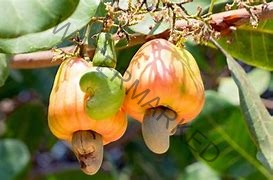Research scientists in the country have developed a hybrid cashew variety that can withstand drought and still maintain an appreciable yield in the f
Research scientists in the country have developed a hybrid cashew variety that can withstand drought and still maintain an appreciable yield in the face of climate change.
There are demonstration plots for the hybrid variety in the Guinea Savannah areas where temperatures could rise to injurious levels. Currently, field days and extension programmes are held on the demonstration plots to introduce the new variety to farmers.
Additionally, there are scions banks (small plots of lands) strategically located at various areas where all the productive varieties are kept to ensure that farmers can gain access to them.
These plots of land are located in various farming areas such as Bole in the Savannah Region, Tumu in the Upper West, Nkoransa, Kintampo and Wenchi in the Bono Region, while others are at Kpando in the Volta Region, Asante Mampong in the Ashanti Region.
A Cashew Research Scientist with the Cocoa Research Institute Dr Paul K. Adu-Gyamfi, speaking in an interview, acknowledged that temperatures in recent times had gone up to injurious levels, affecting the fruiting of the crop.
He explained that as it stood, cashew fruiting normally coincided with the period of drought, spanning December to May. Dr Adu-Gyamfi explained that as a result of climate change, there was the need to look for varieties that could withstand drought and still maintain an appreciable yield.
Additionally, he said early yielding varieties were also produced where fruiting could be completed before the drought period. “Now, we have been able to identify varieties that will complete their yield cycle earlier before the drought or the injurious temperatures set in,” he announced.
On pest control, he said the use of insecticides had raised health concerns, especially among high-consuming countries and European market. He said currently, the direction was to research into non-chemical control methods by using biological organisms that were already in the system.
Dr Adu-Gyamfi said the recently held Consultative International Cashew Council (CICC) conference in Accra that was attended by cashew producing member countries had come out with a number of research findings that addressed challenges in the cashew sector.
Touching on the potential of cashew, he said the future was bright for Ghana, adding that although Ivory Coast was leading in the output, “we have varieties that produce higher yield per area than Ivory Coast.
“But we are lagging behind because we have a larger area suitable for cashew that had not been covered,” he said. Dr Adu-Gyamfi dispelled rumours that the new varieties of cashew were genetically modified, stressing that the country had not reached there yet.
“Currently, I must say we have not gotten to the level of developing GMO cashew. The challenges in cashew now can be solved using current breeding programmes so as not to incorporate GMO techniques.
“The materials or the varieties we are giving to farmers are GMO-free,” Dr Adu-Gyamfi assured the public.

COMMENTS